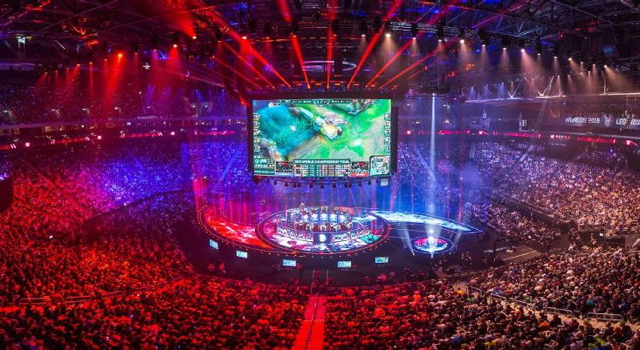Two Groups Vie to Form NCAA-Like Organization for eSports
October 10, 2017
ESports is booming on college campuses; 40 colleges created “varsity” eSports programs, with full-time coaches and staff members, official arenas, player recruitment and eSports scholarships. The NCAA, the main organizing body for collegiate sports, is still mulling over whether eSports is a fit for its qualifications as a sport, even as the Big Ten, the Pacific-12 and colleges begin to look more favorably on accepting it as an athletic endeavor. Meanwhile, grassroots groups are working to create an NCAA-like organization.
The New York Times reports that, “the National Association of Collegiate Esports began last summer as a membership consortium for six varsity programs to organize and establish ground rules.” According to former NAIA administrator Michael Brooks, who is the NACE’s first executive director, the group now has 42 members.
Electronic Gaming Federation chief executive Tyler Schrodt, who founded the organization out of his dorm room, has gathered 70 “less official club programs” around the country, “in the hopes that when they one day gain varsity status, their colleges will affiliate with his effort.” Georgia Tech, Texas, Harvard and Columbia are among those in the EGF.
Schrodt hopes to launch a national tournament, “something like a March Madness for eSports, replete with sponsors, television airtime and crowded arenas.”
Schrodt’s effort is “antithetical to the bureaucratic images of the NCAA,” focused on “aligning with, and looking out for, students’ interests.” In the past, Collegiate Starleague and Tespa (originally the Texas Esports Association) gathered self-organized eSports groups “as online hubs to compete in tournaments with other like-minded groups, or even season-long competitions.”
Tespa co-founder Adam Rosen reports that these events “grew and grew,” to the point that “university administrations began taking the players and the teams that participated more seriously.”
Any eSports national governing body would, however, “be confronted immediately by a multitude of other considerations, including sponsorship, recruiting and eligibility issues but also liability and licensing, since the individual games are owned by corporations like Riot Games (‘League of Legends’) and Activision Blizzard (‘Hearthstone,’ ‘Overwatch’).”


No Comments Yet
You can be the first to comment!
Sorry, comments for this entry are closed at this time.